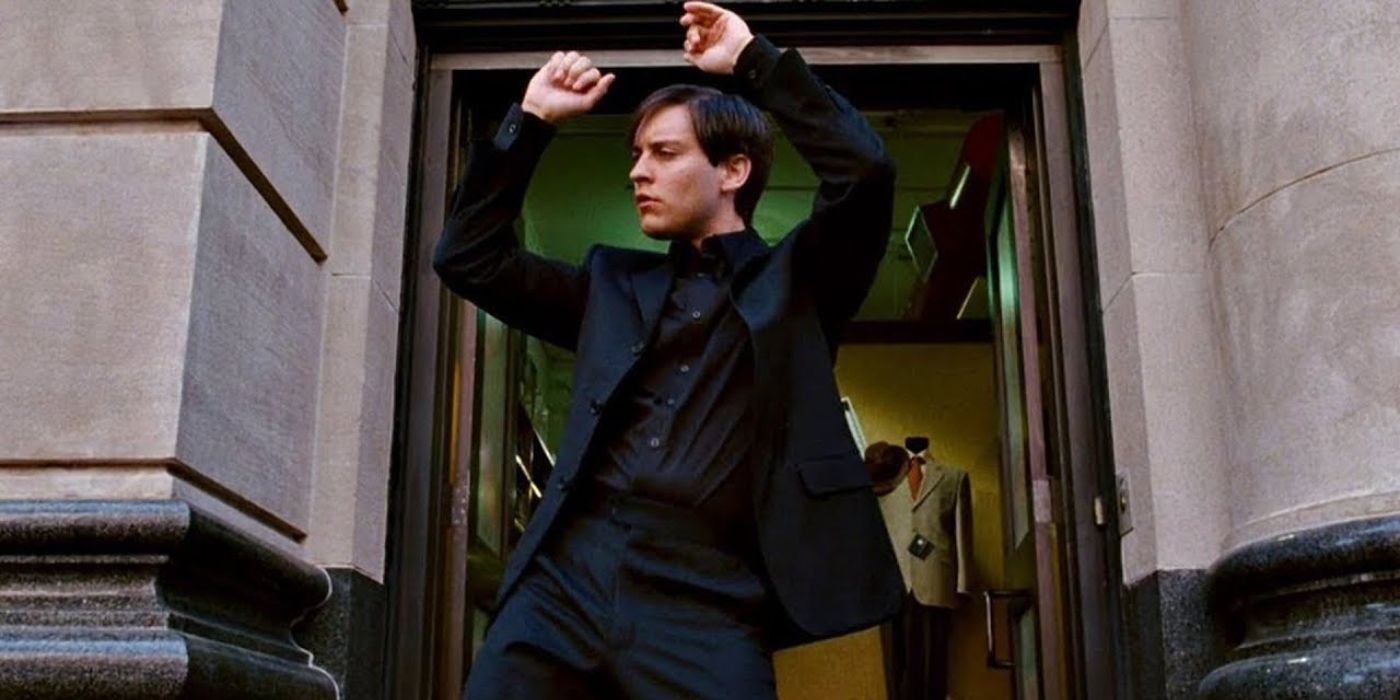To say Spider-Man: No Way Home was a gargantuan success is something of an understatement. Five years after Sony forged its deal with Marvel Studios to bring Spider-Man into the MCU and joint produce the character's solo films, the journey culminated with one of the highest-grossing films of all time. Financially, it was an indisputably ideal outcome for Sony and Marvel. But was it an ideal outcome in terms of creativity? As undeniably fun as Spider-Man: No Way Home's extended nostalgia-rooted franchise crisscrossing is, it ultimately ends up feeling a bit hollow as a resolution for Peter Parker's story across this trilogy and pales in comparison to the only other threequel Spider-Man ever got: Sam Raimi's Spider-Man 3.
Spider-Man 3 Never Deserved the Internet's Hatred
Since its release in 2007, Spider-Man 3 has received its fair share of ire and insults, but was it ever really earned? There's a reason it's viewed as something of an underappreciated gem by many now, despite Raimi's own disbelief. While there are undoubtedly issues with Spider-Man 3 (Harry's amnesia is a clunker, Venom gets unceremoniously shoved into the narrative and leaves the story structure in shambles, and Mary Jane getting kidnapped by the villains for the third time in as many films feels like an afterthought), it remains a riveting Raimi blockbuster made with all the craftsmanship and style one could possibly hope for. Sequences such as the Sandman subway setpiece are absolutely riveting, Raimi filming the symbiote like it's straight out of The Blob is wonderful, and the off-kilter jazz-scored fight between Peter and Harry in Harry's home is the exact combination of goofy and harrowing Raimi is simply the best at delivering.
But perhaps Spider-Man 3's greatest strength is in how it so fully commits to bringing the story of these characters full circle. Across Raimi's first two films, Peter is constantly grappling with attempting to find a balance between his personal life and his superhero life, with Mary Jane and Harry Osborne as the two people in his life most directly caught up as casualties of this struggle. Spider-Man 3 is the culmination of all of this, as Peter begins the film seemingly on a high (the city loves Spider-Man, and he's about to propose to MJ) but gradually reveals to the audience throughout the first act that this couldn't be farther from the truth. He's failing to truly be present in his relationship with MJ, grossly misreading her emotional state at every turn, and getting so vapidly caught up in the city's adoration of Spider-Man that he's becoming less hero and more celebrity. When the symbiote attaches itself to him, it amplifies these core flaws already present and dramatically escalates things.
This all forces Peter to reevaluate himself and his journey. The reveal that Flint Marko actually killed Uncle Ben challenges Peter's entire belief in himself as a force of good and incites an entirely personal and selfish quest for vengeance. But the film ends with Peter ripping the symbiote off of him and atoning for his sins. He ultimately saves the day, finds peace in forgiving Flint Marko, and earns MJ and Harry's forgiveness in return. The final moment of Peter and MJ dancing alone in the cafe is such a perfect encapsulation of these two characters, one that is reminiscent of the ending of The Graduate; there's happiness here, but there's also an underlying sorrow and hardships forever ahead of them.
Spider-Man: No Way Home Lets Down Its Core Characters
For all the flak it gets, Spider-Man 3 sees Raimi going all-in on bringing narrative satisfaction and resolution to these characters. The same cannot be said of Spider-Man: No Way Home. Jon Watts' trilogy capper goes all-in on nostalgia and multiversal shenanigans but leaves precious little time for the characters actually in this story. Seeing iconic villains from the previous franchises show up is delightful but is much more memetic than cinematic, as they essentially show up to recite their most popular lines and reprise their most popular setpieces.
By the time Peter has his final fight with the Raimi universe's Green Goblin, nothing about it feels like a culmination of this Peter's story. The story and world established in Spider-Man: Homecoming felt so fresh and full of potential, intent on not repeating the same stories over again, but its story now ultimately concludes with a film that fetishizes that very repetition. Spider-Man: No Way Home is a fun and often emotional walk down memory lane, but it is an ending that unavoidably feels contrarian to all that the trilogy initially set out to accomplish. Spider-Man 3, warts and all, is steadfastly committed to following through on its story and characters and is all the better for it, delivering a resolution to their respective arcs that feels wholly earned.




